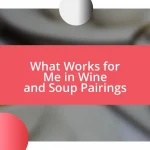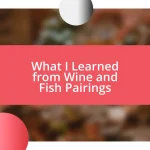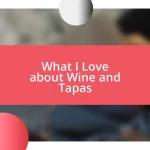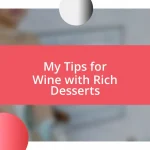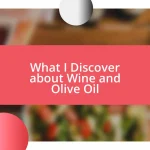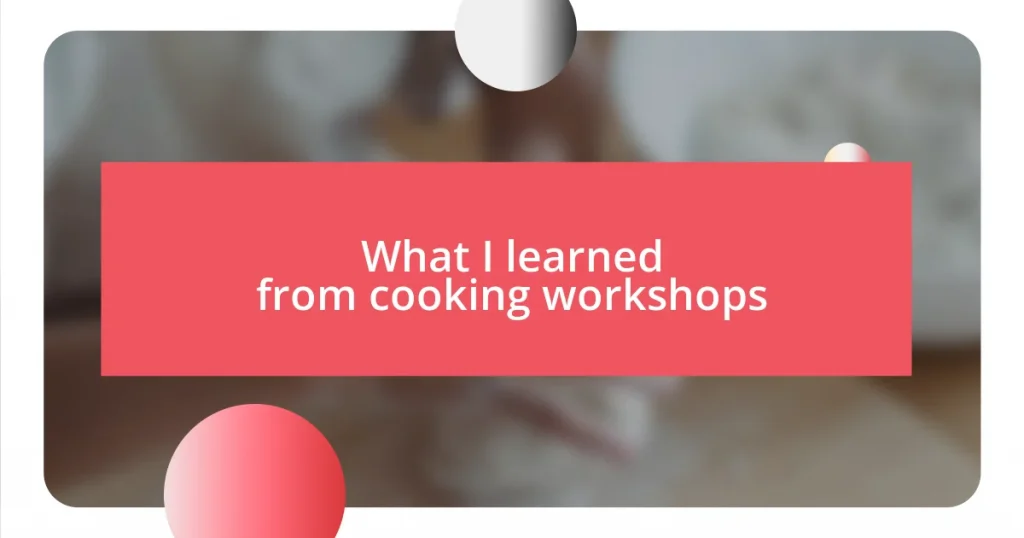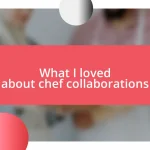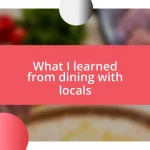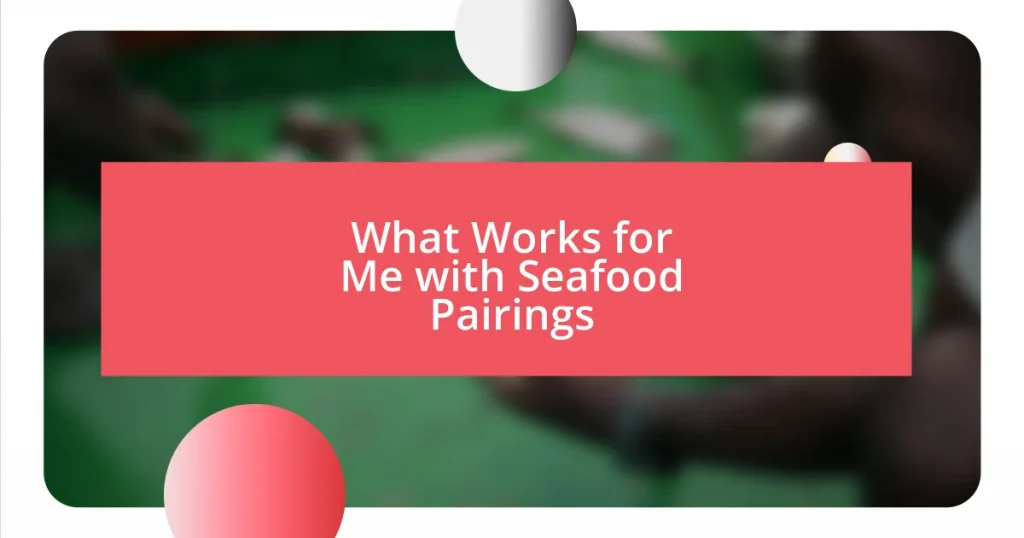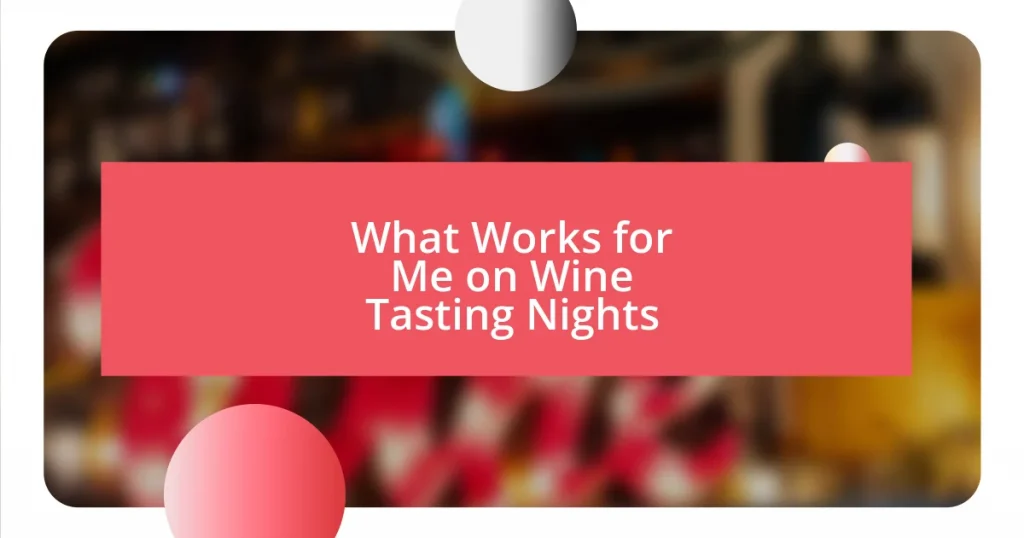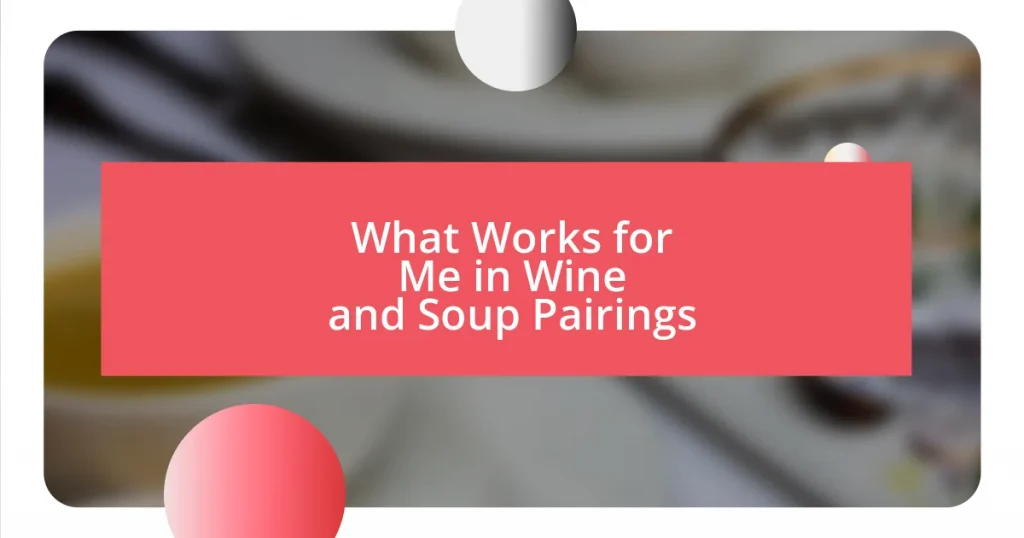Key takeaways:
- Cooking workshops foster a sense of community, encouraging friendships and collaboration through shared culinary experiences.
- Hands-on learning enhances skills like knife handling, multitasking under pressure, and igniting creativity in the kitchen.
- Engaging with ingredients deepens culinary knowledge, transforming cooking into an exciting exploration of flavors and techniques.
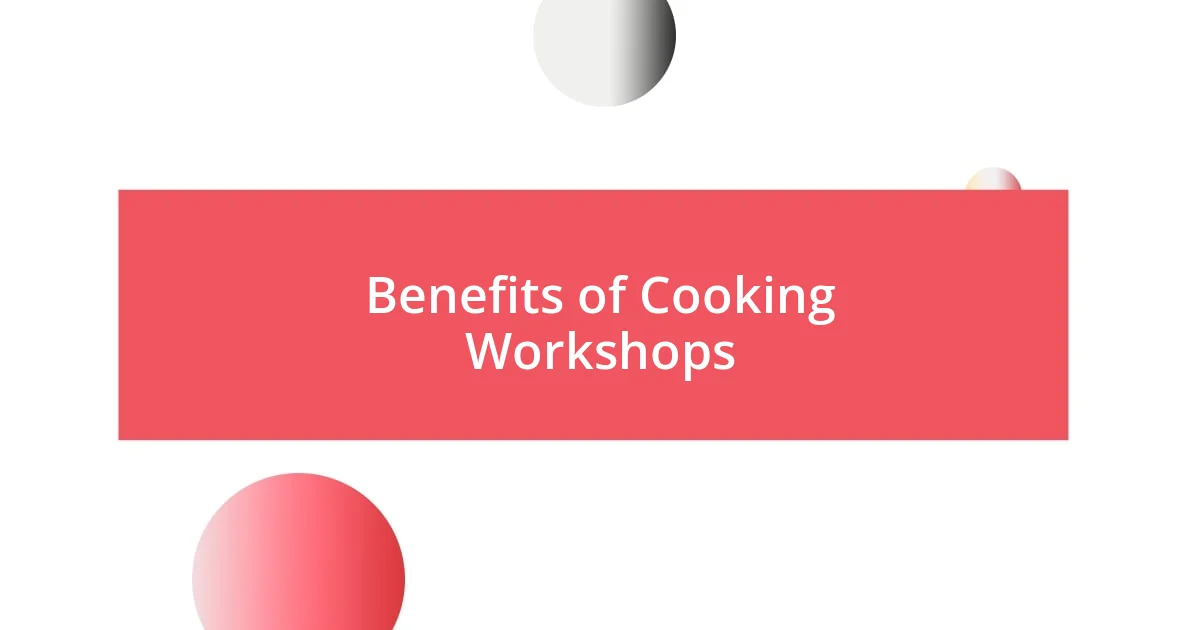
Benefits of Cooking Workshops
One of the most impactful benefits I’ve experienced from cooking workshops is the sense of community they foster. I remember stepping into a bustling kitchen for the first time, feeling nervous yet excited. But as we chopped, sautéed, and shared stories about our culinary backgrounds, I quickly learned that food has this incredible power to bring people together, creating friendships that extend far beyond the apron strings.
Another aspect that truly stands out to me is the hands-on experience that cooking workshops provide. Unlike just watching a video or reading a recipe, I found myself immersed in the process, really connecting with each ingredient. This tactile learning not only boosts confidence but also reinforces the techniques learned—when was the last time you really took the time to savor the process instead of rushing to the end?
What I also appreciate about these workshops is the opportunity to experiment and step out of your comfort zone. I recall my first attempt at making pasta from scratch; it felt daunting! Yet, with the guidance of an experienced chef, I discovered not just new skills, but also the thrill of creativity in the kitchen. Isn’t it amazing how stepping outside our usual routines can lead to unexpected joys? Cooking workshops have a way of turning apprehension into excitement.
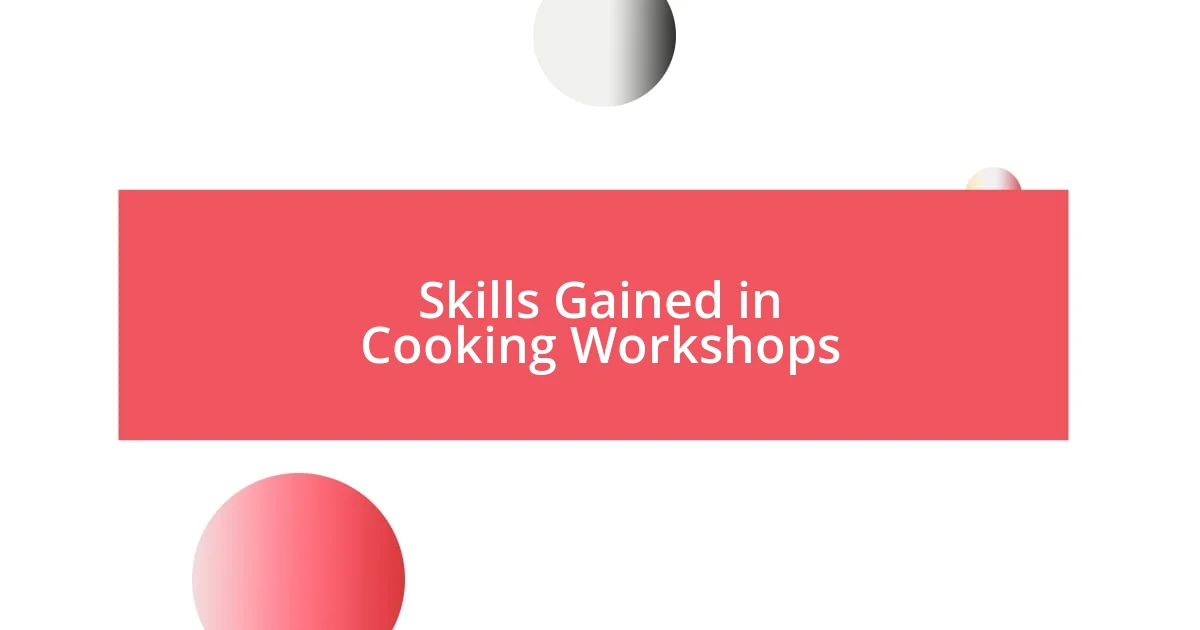
Skills Gained in Cooking Workshops
I’ve gained a variety of skills through cooking workshops that transcend just the technical know-how. One key skill is knife handling. I remember the first time I learned how to properly hold a chef’s knife; it felt transformative. Suddenly, chopping vegetables became not just quicker but also safer and more enjoyable. Sharpening that skill made me realize how essential proper technique is in creating both efficiency and safety in the kitchen.
Working under pressure is another valuable lesson I’ve embraced from cooking classes. I recall one workshop where we had to prepare an entire meal in under an hour. It was a frenzy! I not only honed my multitasking abilities but also learned how to keep calm amidst the chaos. That’s an invaluable skill, whether in the kitchen or in daily life—how often do we need to juggle multiple tasks simultaneously?
Lastly, I found that creativity has flourished in me thanks to these workshops. One memorable experience was when we were asked to create a dish with a random selection of ingredients. It pushed me to think outside of the box and trust my instincts. That challenge taught me to embrace spontaneity, making cooking not just a task but a form of self-expression. Isn’t it fascinating how participating in structured learning can ignite our creativity?
| Skill | Description |
|---|---|
| Knife Handling | Improved safety and efficiency in chopping and preparation. |
| Working Under Pressure | Enhanced multitasking abilities and calmness during cooking. |
| Creativity | Pushed boundaries to innovate with random ingredients. |
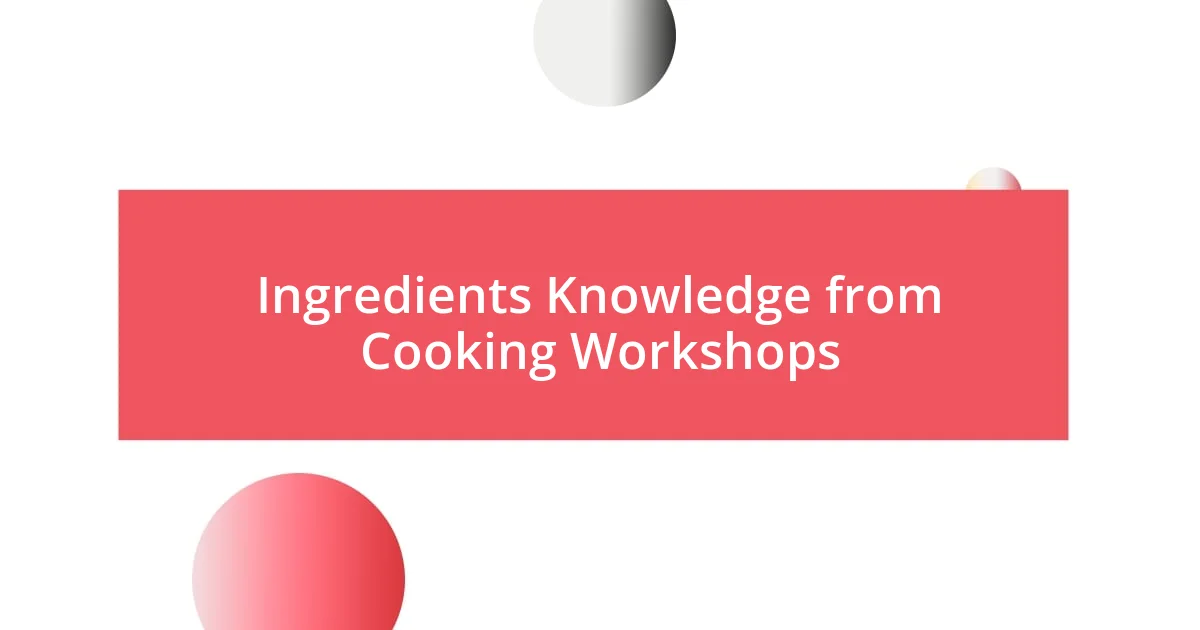
Ingredients Knowledge from Cooking Workshops
The ingredient knowledge I gained from cooking workshops completely transformed my approach to cooking. I recall my first experience working with fresh herbs; their aroma was intoxicating. When the chef demonstrated the importance of balancing flavors, I found myself tasting ingredients in new ways. It was quite an eye-opener to realize how the right combination can elevate a simple dish into something extraordinary.
Here’s a breakdown of what I learned:
- Fresh vs. Dried Herbs: Fresh herbs offer brighter flavors, while dried herbs provide deeper, more concentrated tastes.
- Seasonal Ingredients: Using in-season produce not only enhances the flavor but also supports local growers and is often more affordable.
- Ingredient Pairing: Understanding which flavors complement each other, like sweet and salty or acid and fat, opened new avenues for creativity in my dishes.
There’s something so satisfying about knowing the differences between various types of oils, spices, and how each plays a unique role in a recipe. One memorable workshop involved selecting the right oils for different cooking methods. I remember how amazed I was to learn why olive oil shines in dressings, while canola oil is perfect for frying. This knowledge not only improved my culinary skills but also allowed me to make informed choices in my day-to-day cooking.
To sum up what I discovered:
- Cooking Oils: Different oils have different smoke points and flavors, impacting the outcome of your dish.
- Spice Knowledge: Each spice’s unique origin and flavor profile can drastically change a dish’s character.
- Ingredient Substitutions: Understanding how to substitute ingredients thoughtfully allows for improvisation without compromising flavor or texture.
Immersing myself in the intricacies of ingredients was nothing short of a revelation. It made cooking feel less daunting and more like an exciting exploration, where every meal is an opportunity to learn something new.
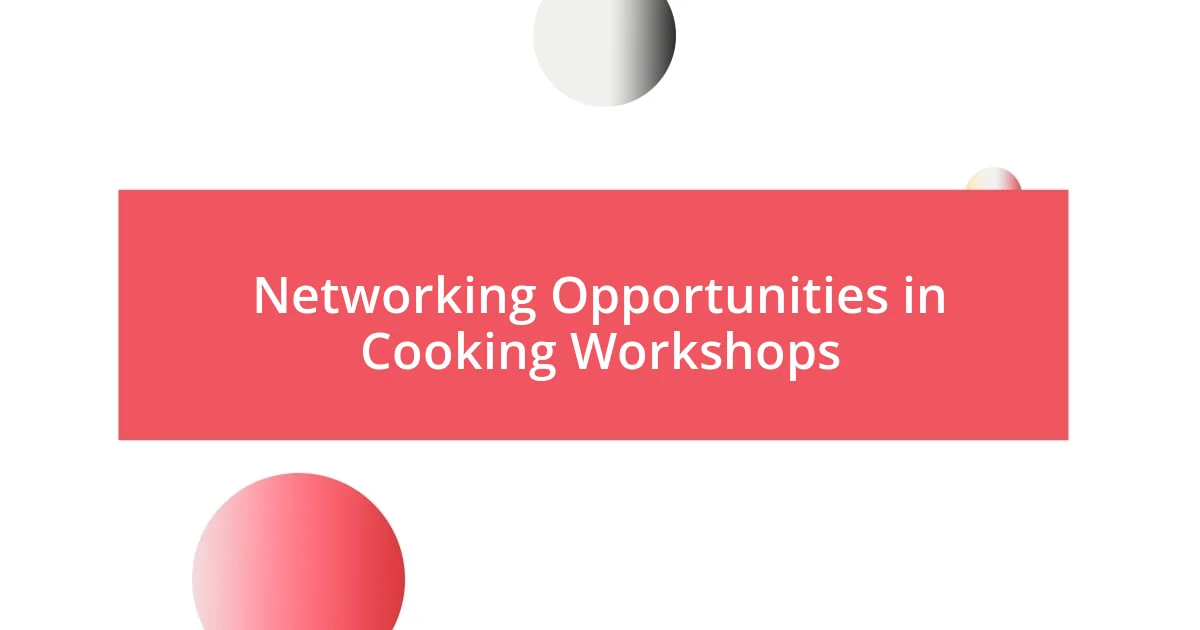
Networking Opportunities in Cooking Workshops
Networking opportunities in cooking workshops can be surprisingly enriching. It’s not just about the food; it’s about the connections you make with fellow food enthusiasts. I remember chatting with a stranger during a pasta-making class, and we ended up bonding over our shared love for Italian cuisine. That conversation didn’t just end there; we exchanged contact information and later met up to explore local restaurants together. Isn’t it amazing how a shared passion can spark such meaningful relationships?
Moreover, engaging with instructors and peers in a dynamic cooking environment creates an organic platform for networking. I once took a workshop led by a renowned local chef. After the session, I was able to ask him about his journey in the culinary world, which opened the door to mentorship and future collaborations. This highlights that a cooking class is not just about learning techniques—it’s a vibrant community waiting to be tapped into.
What truly stands out for me is how these workshops foster a spirit of collaboration. I recall working alongside a fellow participant on a group dish where we relied on each other’s strengths and perspectives. That cooperative atmosphere not only led to the creation of a delicious meal but also built camaraderie. Who knew that chopping vegetables together could lead to forming lasting friendships and expanding professional networks? It’s these moments that make cooking workshops so uniquely valuable.
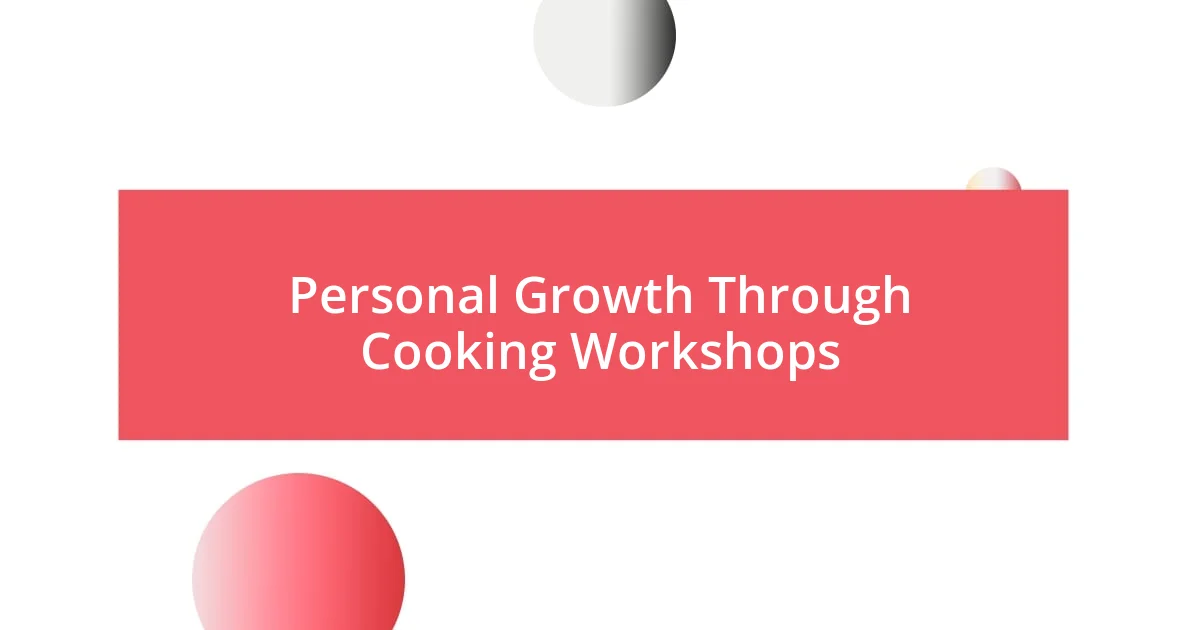
Personal Growth Through Cooking Workshops
Participating in cooking workshops has profoundly shaped my personal growth, impacting not just my culinary skills but also my confidence. I remember the first time I was asked to lead a group in plating a dish. My heart raced, but I found there’s something liberating about sharing your knowledge and guiding others. That experience taught me that I could take the lead and, more importantly, it encouraged others to step out of their comfort zones as well.
I’ve also discovered unexpected lessons about patience and resilience in these workshops. During a challenging bread-making session, I struggled with the dough refusing to rise. It was frustrating, but it reminded me of the importance of persistence. Eventually, when I pulled that perfectly baked loaf out of the oven, the sense of accomplishment was palpable. Isn’t it fascinating how cooking can mirror life’s challenges, teaching us to embrace setbacks?
The creative expression I’ve found in cooking has been another avenue for personal growth. I recall a session where we were encouraged to invent our own fusion dishes. I let my imagination run wild, combining flavors from my grandmother’s traditional recipes with modern techniques. The thrill of experimentation not only boosted my culinary creativity but also ignited a passion within me to explore my identity through food. How often do we let ourselves truly experiment in life? Those moments in the kitchen have made me realize the value of breaking traditional boundaries, both in cooking and in my personal endeavors.


